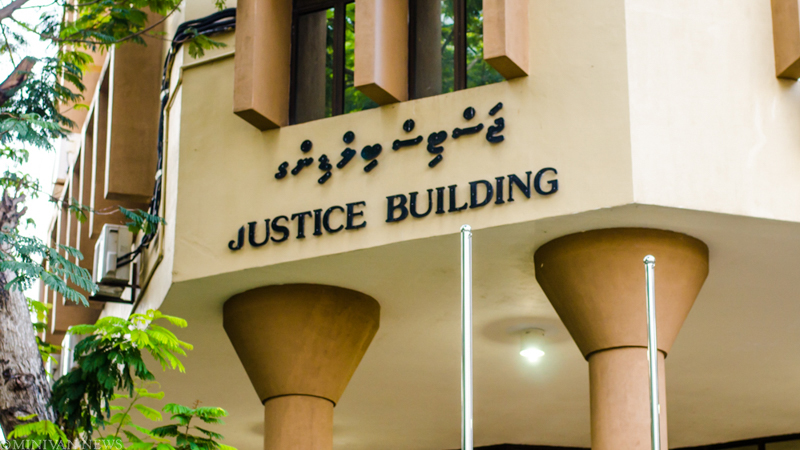A magistrate court has raised charges of contempt and placed a school headmaster under house arrest when he reprimanded a judge at the court for allegedly harassing his sister, an administrative staff at the courthouse, in a private text message, The Maldives Independent has learned
Mohamed Shaukath, the head of Hamad Bin Khaleefa Al Thani School in Laamu Atoll Fonadhoo Island, was summoned on Sunday, where a three-judge panel ordered him to apologise for “harassing and threatening judges, and defaming the judiciary,” according to two separate reliable sources.
The trial was overseen by the same judge who is involved in the dispute.
When Shaukath asked for legal counsel, he was placed under house arrest and given a period of five days to appoint a lawyer, a well-placed source said.
The Fonadhoo magistrate court was not responding to calls at the time of going to press.
Contempt of court carries a sentence of six months in jail, according to a regulation published by the Supreme Court in 2014.
Spoken or written words as well as deeds and gestures that constitute contempt of court include portraying the judiciary in a negative light, an utterance or action that demeans a court, a judge, or court officer, “criticising or berating a court or a judge, or committing any act that causes loss of respect and dignity of a court or a judge, or attempting to bring the court into disrepute.”
Other actions include obstruction of ongoing trials, non-compliance with court orders or verdicts, refusal to provide testimony at a trial, refusal to answer summons to appear at court or flying overseas without permission, and use of obscene language inside a courtroom.
Additionally, causing physical harm to a judge or a court officer, damaging court property, bringing cameras or recording devices into courtrooms without permission, leaving a courtroom during ongoing proceedings, causing disorder at a trial, and using a public forum or the media to unduly influence an ongoing trial would also be considered contempt of court.
The regulations authorise judges to take immediate punitive measures during trials or within court premises, but the state must press charges and initiate criminal prosecution for words or deeds constituting contempt of court outside a courtroom.
The Supreme Court, High Court, and lower courts, however, could initiate proceedings if either is the target of the contemptuous remark or action.
Former members of the Elections Commission, opposition MPs, activists and lawyers who have represented opposition members have been the target of contempt proceedings in the past.
An opposition activist, Anil Mufeed, was sentenced to six months in jail last year when he reportedly told a judge “Thank you for the reload” during a remand hearing.
Additional reporting by Hassan Moosa



















